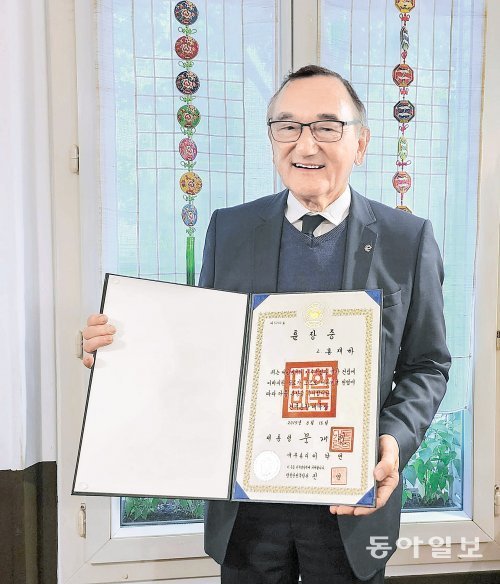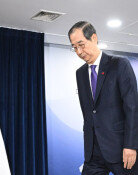Patriot Hong’s remains to return home 62 years after his death
Patriot Hong’s remains to return home 62 years after his death
Posted October. 17, 2022 07:34,
Updated October. 17, 2022 07:34

“I am happy because I was aware of my father’s desire to return to the fatherland.”
This is what Hong’s second son, Jean Jacques Hong Puan (80), had to say at a press meeting at a restaurant in Paris, France on Friday, one month before the remains of patriot Hong Jae-ha (1892–1960) will be repatriated to Korea in November. The late Hong is a France-based independence fighter who, despite living in poverty, sent his hard-earned money to support Korea’s independence movement from Japan’s colonial rule. “My father would always be agonizing due to concern about his fatherland and stress from not being able to see his family in his hometown,” Hong Puan said as he welcomed the repatriation of his father’s remains.
The Korean embassy in France and the Korean French association decided to bury the late Hong’s remains at the site for independence fighters at the Daejeon National Cemetery through the Patriots and Veterans Affairs Ministry’s program to return the remains of overseas independence fighters. Patriot Hong’s bereaved family expressed the intention to repatriate his remains to Korea to the ministry when the Korean government awarded him patriotic merit, an order of merit for the national foundation, in 2019. Originally, his remains were planned to be repatriated in 2020, which was delayed due to the Covid-19 pandemic. The remains are now set to be sent home and buried at the Daejeon National Cemetery next month.
“My father would always work as a part-timer because he believed he would return to his fatherland one day. He was constantly living in poverty,” Jean Jacques said. While longing for his return to his fatherland, Patriot Hong barely managed to support his family by working at a hotel, factory, and farm. Even so, he spent on living only half of the 3 francs he earned and donated the remainder to support the independence movement. At that time, 35 people, including Hong, once raised 6,000 francs and donated the money to the Paris office of Korea’s provisional government. “It was difficult to help other Koreans while living in poverty, and we wanted to resist my father’s Asian way of thinking, but we respected him nonetheless because we were aware of his deep love,” Hong Puan said.
Born in Seoul in 1892, Hong escaped to Russia to avoid detention by Japanese imperialists after participating in the independence movement in Korea. The Frist World War broke out when he moved to Murmansk through Siberia. When Great Britain, occupying Murmansk at the time, was checking with Japan whether to transport Koreans there to Japan, patriot Hwang Gi-hwan, chief secretary of the provisional government’s Paris office, invited 35 Koreans, including Hong, to France. Hong died of cancer in France in 1960.
Eun-A Cho achim@donga.com







